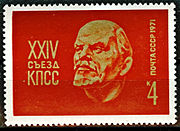
Editor’s Note: This is Part II of “Bordering on Madness,” chronicling the adventures and misadventures of Contributing Writer Robert Waite as he journeys from England to Moscow and back in 1971, driving a vintage Triumph Spitfire. As we pick up the tale, he has just entered the USSR after refusing to drive his car into a six-foot-deep concrete pit at the border.
If you missed Part I of “Bordering on Madness,’ you can read it here.
By Robert Waite
On this first day we drove to the city of Minsk, which today is the capital of an independent Belarus, but was then part of the Soviet Union.
The roads were relatively empty, save for a few lumbering, diesel smoke-spewing trucks. We made it to our hotel at about 5:30 pm – which was a good thing, as Intourist had sternly warned that if we did not make it to our destination by 6, the police would come looking for us.
Our time in Minsk introduced us to what would become a reoccurring routine.
An Intourist official would meet us at the hotel desk. If we wanted to go for a walk after dinner, he or she would accompany us. (Driving after dark was forbidden.)
After breakfast there would be a tour, which always included a visit to a memorial to those who fell in World War II and to a park with a statue of Lenin as its centerpiece.
Intourist guides, we soon learned, lacked two things – a sense of humor and a trusting nature.
They were harder to shake than a chaperone at a girl’s school dance. At one point a guide wanted to accompany us in the car – until he saw that the vehicle barely fit two.
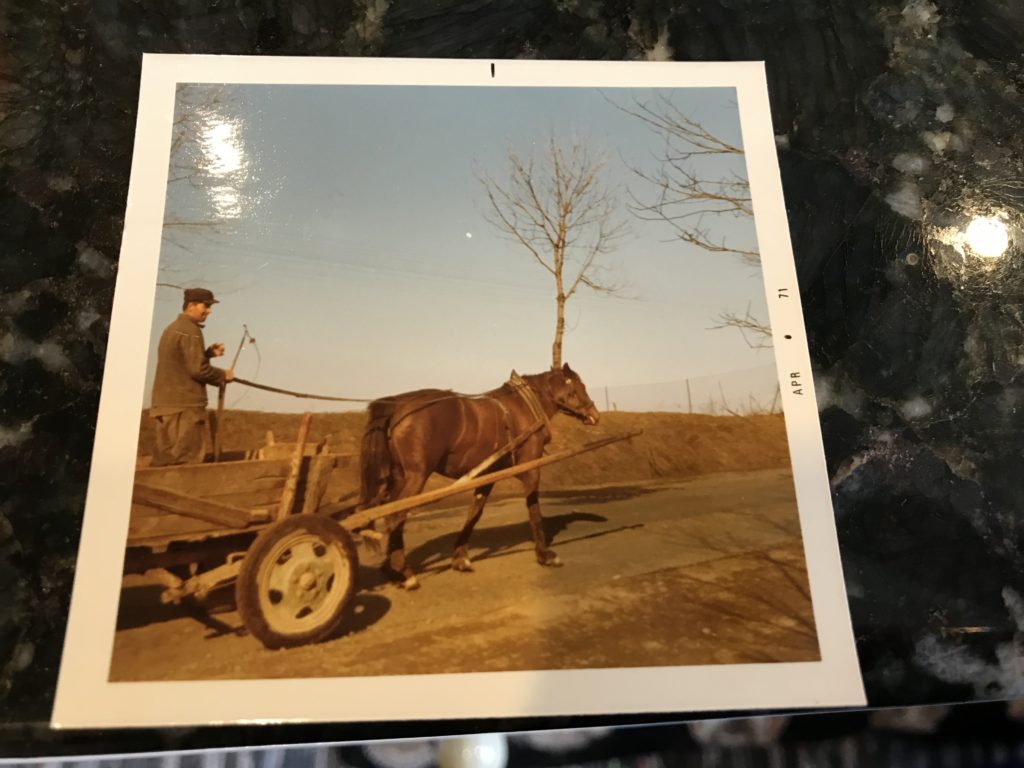
Move Sporty Car, Pozhaluysta?
From Minsk we headed east towards Smolensk. The winter snowpack was mostly gone, but the melt had produced flooding, in some places cresting the road itself. We were passing through a northern reach of the Pripet Marshes, which had famously slowed the advance of Napoleon and Hitler. Now it was slowing us.
At one point the water was so high that someone had laid a bed of reeds to allow passage. This worked for us – until it did not. The low-clearance Triumph eventually sat wedged atop the reeds, its wheels spinning freely. Reed ‘em and weep.
Any prospect of making our hotel by 6 pm seemed to be fading fast – but at least the police would be sent to find us, we reasoned.
Then, suddenly, a convoy of trucks chugged up behind. Out poured four burly men. They surveyed the situation, conversed among themselves, and then one gestured at the car and said, “pozhaluysta”, which my Polish-speaking co-pilot took to be the Russian equivalent of “please”.
We stepped out of their way – and watched in amazement as each grabbed a corner and then proceeded to lift the 1,567-lb. (711 kg) car up off its perch and carried it about 100 yards to dry pavement. Saved!
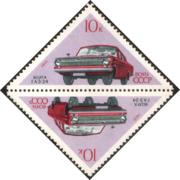
Spies in Smolensk?
Smolensk repeated the same drill – an Intourist minder on arrival; a walk after dinner; a tour in the morning.
At dinner we spied the Mercedes mystery couple at a far table. Definitely spies, we decided.
The city did have its charms, including the lovely Assumption Cathedral, whose turquoise exterior was eye-catching. There was also Lopatinsky Garden, whose centerpiece is a “Monument to the Defenders of Smolensk”, celebrating Russia’s efforts to thwart Napoleon’s 1812 invasion.
This seemed to be a disquieting theme – celebration of the demise of those who foolhardily attempt to penetrate the Russian Motherland.
Undaunted, we were back on the road again, rolling past drier terrain and occasionally spying a village off a side road – side roads that did not exist on our official map.
We took a chance and drove down one of them. It was soon clear why Intourist was not encouraging side excursions – life looked pretty basic, including privies behind shack-like dwellings. Mud was everywhere.
Back on the main road we were making good time – but then I noticed the gas gauge.
A Triumph Spitfire’s gas tank held 9.9 US gallons. I had filled up, using my trusty coupons, early the day before – but what I had not factored in was the gaping distance between gas stations.
In the middle of nowhere – a term undoubtedly invented by the Russians – I ran out of gas.
Passing trucks were of course of no use – they used diesel.
A half hour went by. Buzzards circled.
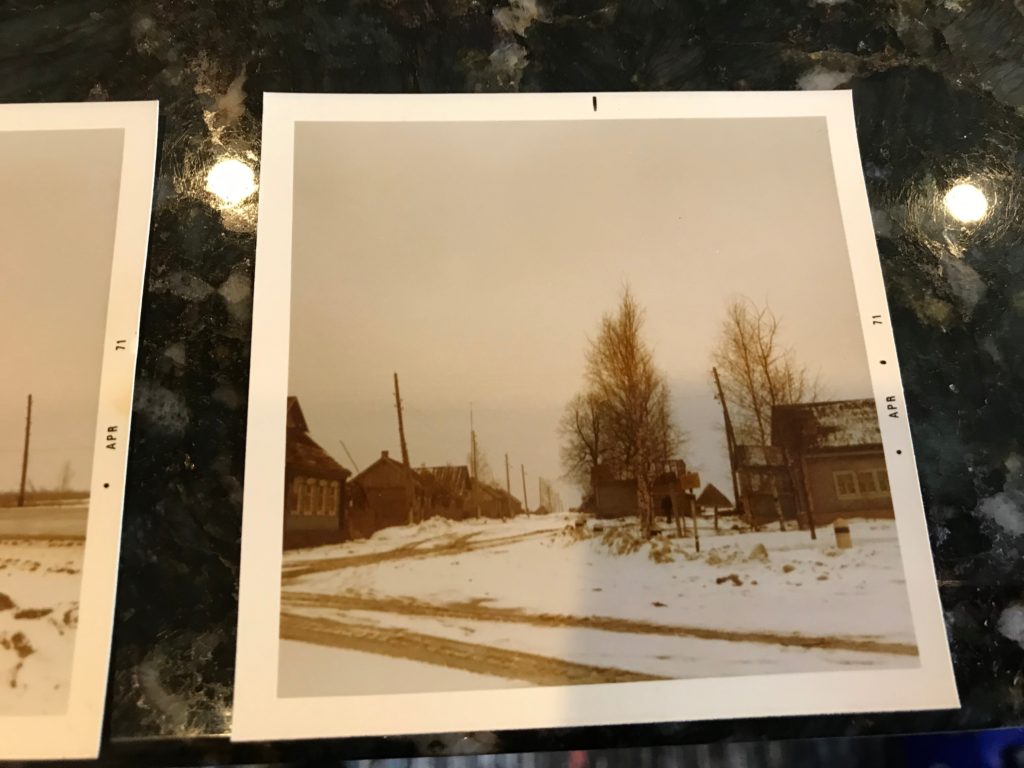
Saved by the” Spies”
And then, seemingly out of nowhere, the massive Mercedes appeared. It must have been traveling close to 100 miles per hour. We waved and – yes! – the vehicle braked and backed up to us.
Out jumped an enormous man – all I could think of was Roosevelt Grier of the New York Giants – and his athletic-looking female companion.
While he proceeded to pull a jerry-can from his trunk, the woman introduced herself.
“Hello,” she said in accented but perfectly understandable English, “My name is Milica, and this is my husband, the Democratic Republic of the Congo’s Ambassador to the Soviet Union.”
So much for the spy theory. I had been hoping her name was Natasha and his Boris.
The Ambassador, who spoke no English, cheerfully filled our tank to the brim – and refused payment. Instead, through his wife, he invited us to look him up in Moscow, giving us his card.
Just before they went on their way, Milica told us that she was originally from Yugoslavia, and that they met at Moscow University.
She then confided, in a whisper, “We picked up the Mercedes at the factory in Germany. My husband has never driven before and only knows how to go fast. If we see you in Moscow, it will be a miracle.”
And off they sped.
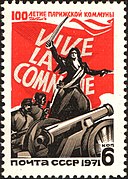
Moscow, At Last
We arrived in Moscow just ahead of the 6 pm deadline. Our hotel, the Metropol, was near the city center. Built pre-revolution, it maintained an art nouveau-era lightness that other structures lacked.
Parking the car in a large open space out front, we went in to register. Our guide was waiting.
Once the formalities were done, she delivered a barrage of bad news.
First, because the 24th Communist Party Congress was about to commence, Lenin’s Tomb was open only to Party members. Second, because there was a shortage of lodging space, we would have to exit the city earlier than planned.
I toyed with the idea of joining the Communist Party for the sole purpose of visiting the tomb but thought better of it. As for leaving early, I employed a colorful expression that included “no way”.
Suddenly the doorman rushed up and said something to our Intourist minder.
“Sir,” she said, “I think you need to move your car.”
When I came out of the hotel, my car had disappeared. The whole area in front of the entryway was thronged with people, perhaps as many as five or six hundred. With great effort the doorman pushed through until we finally reached the vehicle.
The huge crowd could not have been more excited had a flying saucer arrived from Pluto.
Some were caressing the Spitfire; others peering in the windows. Just as I was about to climb in, a man in a great coat, bearded and in his 50’s, tugged at my sleeve. He pointed to the badge on the Triumph hood – which included the RAF concentric circle insignia.
Putting his two hands together in a spread formation, he smiled broadly, if somewhat toothlessly, and exclaimed loudly, in English, “Spitfire! Very good plane!” As he did so, his hands mimicked the flight of an aircraft.
I gave him a hug. He gave me a kiss.
We were told that the car needed to immediately be moved to an inner courtyard for security reasons. I was also told to remove the windshield wipers and take them to the room – otherwise they would “disappear”. I did so.
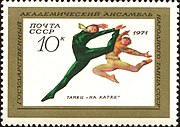
Moscow Sights
The hotel room was spacious, with high ceilings, ornate decorative touches, and a telephone that looked like something you’d see in a 1920’s silent film.
We assumed the room was bugged – we assumed all our hotel rooms were bugged – but in this case there was no need for miniaturization. You could have fit a human eavesdropper into the phone’s base, and no one would have been wiser.
While in Moscow we did get to see many of the sights, including St. Basil’s Cathedral, the Kremlin, and Moscow University. We were also given tickets to see Sergei Prokofiev’s opera “War and Peace” at the Bolshoi.
The production, based on Leo Tolstoy’s epic novel, involves 13 scenes, a cast of almost 100, and runs for 230 minutes. We were seated front row, center. There was no diplomatic way to escape.
Speaking of diplomats, we did get to visit the Congolese Ambassador and his wife. They had a modest flat, but they were generous in every respect. Among other things, I learned that Russians were not always kind to black Africans – that they had encountered racism in the worker’s paradise.
The pressure on us to leave early intensified – to the point where we believed someone was trying to poison us via the food served in the hotel dining room. We both became quite ill.
Taking the hint, we left early the next morning. With our windshield wipers.
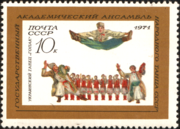
Poles? What Poles?
The rest of the trip looped us southwards and westwards in an arc, traveling to Oryol (Orel), Kyiv (Kiev) and Lviv (Lvov), the latter two now situated in an independent Ukraine.
For those of a literary bent, or who lean towards the nihilistic, Oryol has an interesting museum dedicated to favorite son Ivan Turgenev, who wrote “Fathers and Sons”, among other works.
We found Kyiv to be a beautiful city and Ukrainians to be far friendlier than their Russian counterparts. Even the Intourist guide seemed slightly less stiff.
Our final city, Lviv, provided us with one final example of Soviet-era revisionism, delivered by yet another Intourist guide.
Many Poles – including my traveling companion – identify Lviv as a Polish city, as it indeed was before the Soviets rearranged the border after World War II.
When asked about this, our guide was unequivocal. “This is a Russian city. There are no Poles here,” she said as we took our customary after dinner stroll.
It was Holy Week. We came to a church.
The door was open, and we could hear voices coming from inside. We climbed the stairs to find the place packed – and the priest speaking to his congregation in Polish.
We spun around to confront the guide.
There was a shrug. “Maybe they are visiting,“ she offered.
On our trip back to the UK we stopped again in Munich and then in Paris, to visit another of my co-pilot’s cousins. We also exhausted our funds due to a needed repair of a section of the Triumph’s exhaust system, which must have fallen off at some point, reducing engine compression.
In the end, we never opened the box of Triumph spare parts. And we returned to Colchester in one piece.
In retrospect, that was the real triumph.
Author Bio:
Robert Waite subsequently served as East European Correspondent for Pacific News Service, based in Warsaw. Clark Norton was his editor.












Leave a Reply